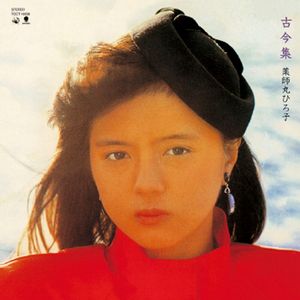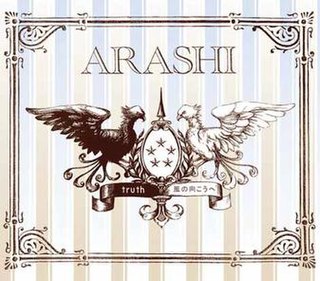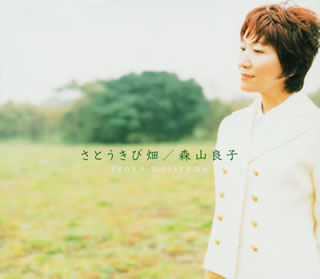Enka (演歌) is a Japanese music genre considered to resemble traditional Japanese music stylistically. Modernenka, however, is a relatively recent musical form, which adopts a more traditional musical style in its vocalism than ryūkōka music, popular during the prewar years.
Hitomi Furuya, known professionally as Hitomi, is a Japanese singer-songwriter. She began her career as teen model before making her singing debuting under the helm of Tetsuya Komuro in 1994, who produced Hitomi's earliest work in pop music. Hitomi has striven for artistry over the course of her career, penning "forward-looking" lyrics and becoming known for her "unusual" fashion sense that accompanied a "supermodel allure". Her signature songs include "Candy Girl", "Love 2000" and "Samurai Drive".

Mika Nakashima is a Japanese singer and actress. Five of her studio albums, one of her mini-albums and one of her compilation albums have reached number one in Japan's Oricon album chart. She also embarked on an acting career, most notably as Nana Osaki in the live action film adaptations of Nana. She has sold over 10 million records in Japan.

Kumiko Kōda, known professionally as Koda Kumi, is a Japanese singer from Kyoto, known for her urban and R&B songs.

Kiyoshi Hikawa is a Japanese enka singer who was born on September 6, 1977, in Minami-ku, Fukuoka, Japan. His real name is Kiyoshi Yamada and he is known as "The Prince of Enka" due to his young age and popularity. When he is marketing non-enka music, he goes by the name KIYOSHI, using capitalized letters of the Roman alphabet, instead of kanji or hiragana.

Junko Utada, known primarily by the stage name Keiko Fuji was a Japanese enka singer and actress. She had success in Japan in the 1960s and 1970s with her ballad-type songs. She was married on-and-off with Utada Teruzane, and was the mother of Japanese pop singer Hikaru Utada.
Ataru Nakamura is a Japanese singer, songwriter and actress. After signing with Avex Trax, Nakamura released her debut single, "Yogoreta Shitagi" in 2006. She attracted public attention after coming out as a transgender woman publicly via her official website on 11 September 2006.

Genki o Dashite is the 1st track on Japanese actress/singer Hiroko Yakushimaru's 1984 debut album Kokinshū (古今集). It was written by singer-songwriter Mariya Takeuchi. Takeuchi recorded her own version of the song for her Request album, released in 1987. It was released as a single from the album in 1988.

Nakitai Nara is the twenty-seventh single released by J-Pop singer Hitomi Shimatani. It peaked at #34 on the Oricon charts and sold around 3,754 copies. To date, it is currently her lowest-selling single.

Wake You Up/Ame no Hi ni wa Ame no Naka o Kaze no Hi ni wa Kaze no Naka o/Marvelous, is twenty-eighth single released by J-Pop singer Hitomi Shimatani. Released on June 25, 2008, it is only available in a CD+DVD format. It was released the same day as an additional collaboration single with Mitsuo Aida, Ame no Hi ni wa Ame no Naka wo Kaze no Hi ni wa Kaze no Naka wo, whose title and track listing differ slightly from this single's and thus is considered a separate single.

シャンティ (Shanti) is the second studio album from Japanese singer Hitomi Shimatani. It was released on June 12, 2002, and hit #1 on the Oricon charts. Since then, it was last recorded as having sold around 438,447 copies. Thus far, it is her highest-selling studio album, and her only one to top the Oricon weekly charts.

"Truth/Kaze no Mukō e" is a single released by Japanese boy band Arashi. It was released on August 20, 2008 by their record label J Storm. "Truth/Kaze no Mukō e" was released in three formats: a regular edition and two limited editions. The regular edition comes with a bonus track titled "Smile" and the instrumentals of all the songs while the limited editions both come with a DVD.
Hitomi is a feminine Japanese given name. It is often written with the single kanji 瞳 or the two kanji 仁美. It can also come from 智 (hito) meaning "wisdom, intellect" and 美 (mi) meaning "beautiful". Individuals may alternatively write the name using the hiragana as ひとみ. The singer hitomi writes her stage name using the Latin alphabet.

"Nada Sōsō" is a song written by Japanese band Begin and singer Ryoko Moriyama. It was first released by Moriyama in 1998, but achieved popularity through the cover version by Rimi Natsukawa in 2001.

Huma-rhythm is the sixth studio album by Japanese singer Hitomi. It was released on January 30, 2002, through Avex Trax. Following the highly successful Love Life (2000), Hitomi began to notice a "disconnection" between her perception as a public figure and her true self in private. She sought to pursue the core of her being; articulating "our dissatisfaction with society" yet wanting to "live happily as [herself]".

Keiko Kubota, who goes by the mononymous stage name Keiko is a Japanese pop singer. She is one of the vocalists of the FictionJunction project started by Yuki Kajiura, and was a core member of the vocal group Kalafina which ran for ten years from 2008 to 2018.

Spirit is the tenth studio album by Japanese singer and songwriter Hitomi. It was released on April 27, 2011, through independent label Maximum 10. It is her first not to be handled by Avex Trax, though both are owned by the same operating company. Spirit is described as "electro-oriented club music married with emo rock"; produced by Advanced Alternative Media, the album is noted as "their first collaboration with a Japanese artist".

"Hitomi o Tojite" is a song recorded by Japanese singer Ken Hirai, from his sixth studio album Sentimentalovers. It was released by Defstar Records as the album's second single on April 28, 2004. It is the theme song to the film Crying Out Love in the Center of the World. "Hitomi o Tojite" was the most successful song of 2004, topping the year-end Oricon Singles Chart with over 800,000 units sold. Hirai performed the song on his fourth appearance on Kōhaku Uta Gassen on December 31, 2004. "Hitomi o Tojite" was one of the eleven recipients of the Japan Gold Disc Award for Song of the Year. Although the song was considered for contention at the 46th Japan Record Awards, Hirai declined the Japan Record Award nomination.

I Hope So is the twenty first studio album by Japanese singer Akina Nakamori and second studio album to be released during the 2000s. It was released on 14 May 2003 under the Universal Music Japan label. The album includes the lead single "Days".

"Sekaijū no Dare Yori Kitto" is the 25th single by Japanese entertainer Miho Nakayama and a collaboration with the band Wands. Written by Show Wesugi, Nakayama, and Tetsurō Oda, the single was released on October 28, 1992, by King Records.
















